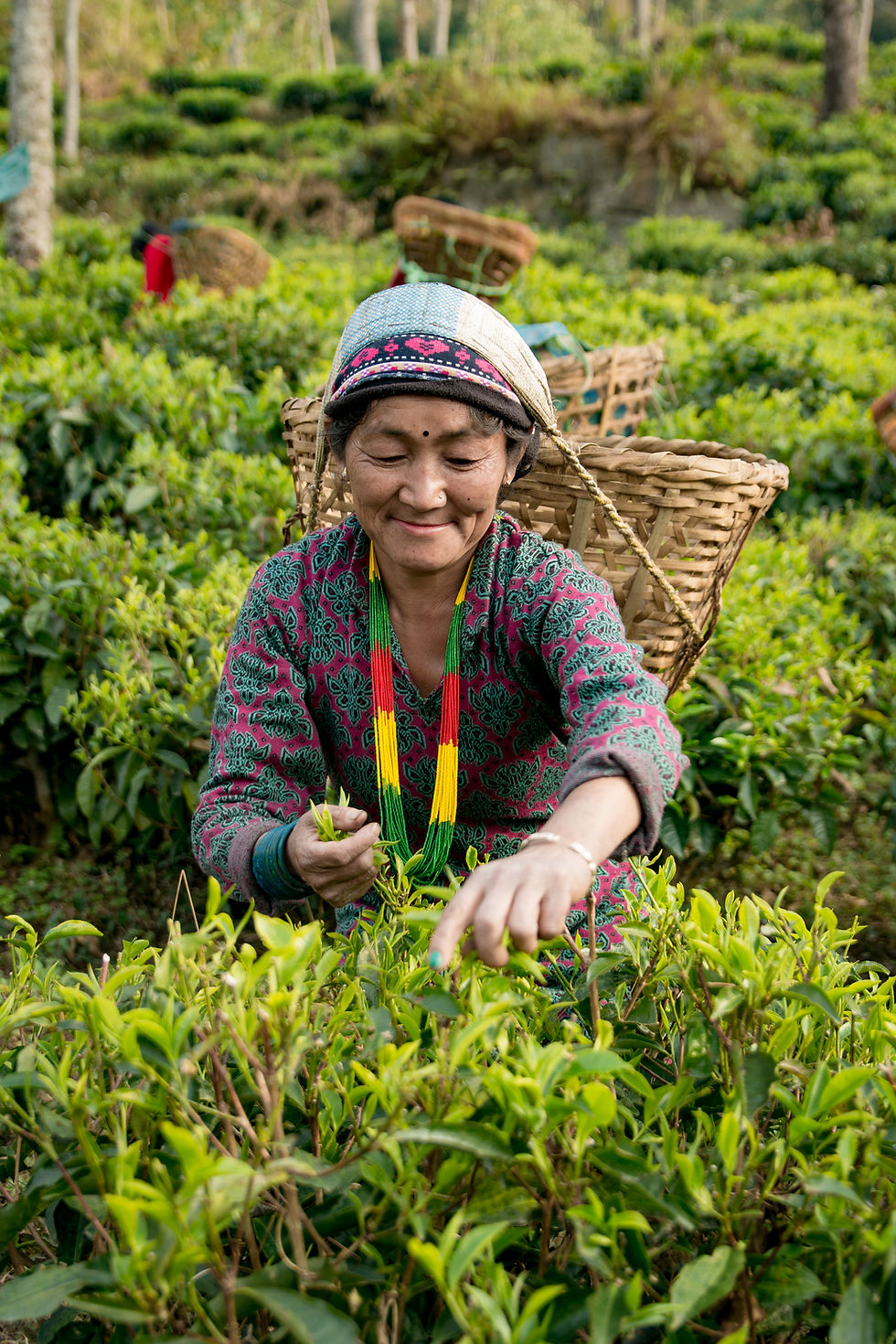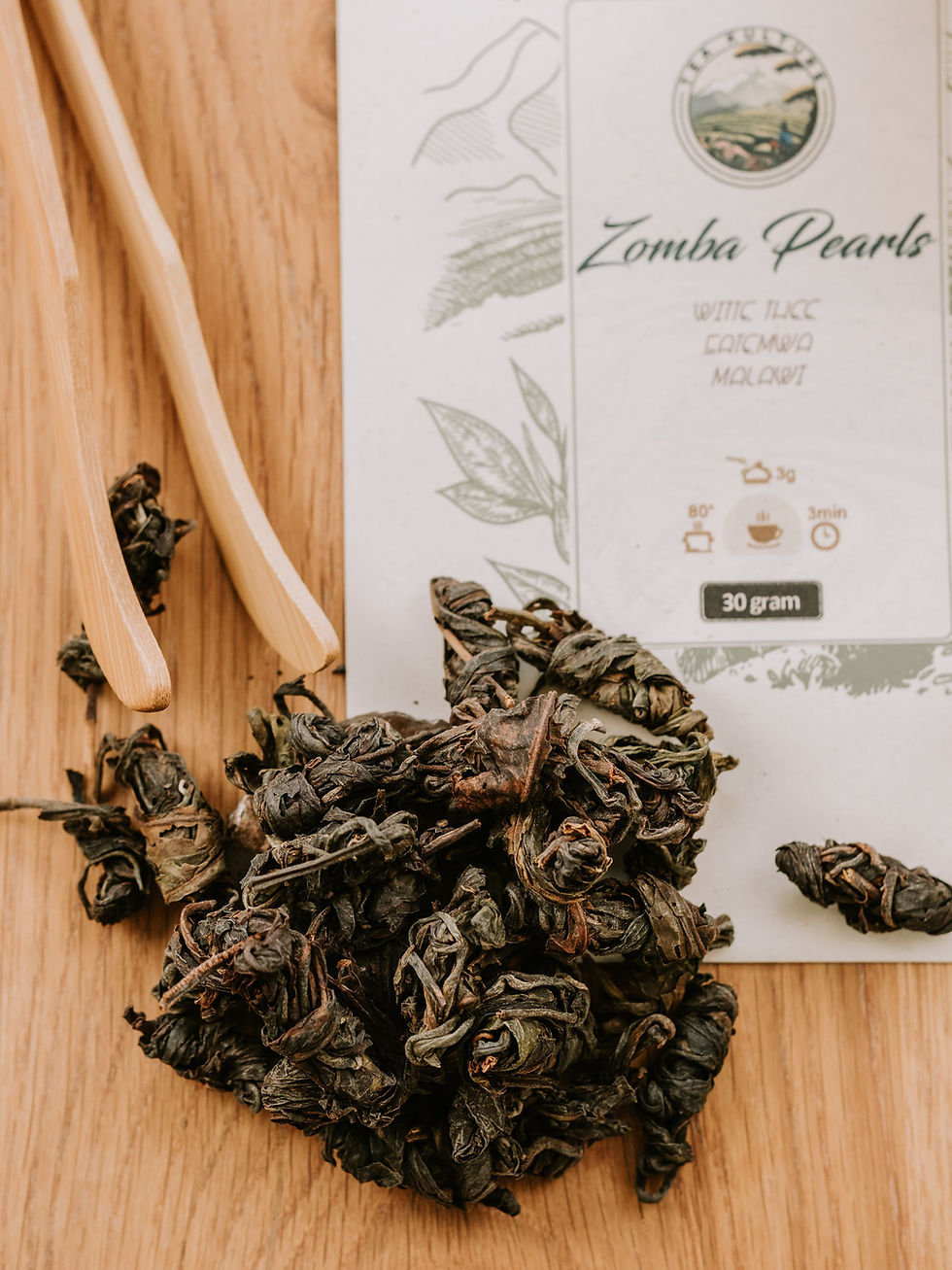Tea Kulture: Ethical Cup of Artisan Tea from Belgium
- Katrina Wild

- Feb 14, 2024
- 5 min read
Finding its roots in Belgium, Tea Kulture emerges as a haven for tea aficionados seeking more than just a beverage. Founded by Hans Baeten, the brand represents a harmonious blend of artisanal craftsmanship, sustainability, and a commitment to a better world. Tea Kulture is more than a tea company—it's a narrative, an experience, and an ode to the transformative power of tea. As we embark on this exploration, discover the ethos that sets Tea Kulture apart, weaving together the rich flavours of its teas with a dedication to ethical practices and a sustainable future.

Mogok Tea, Myanmar.
The Story
Tea made with respect for people and nature.

Tea Kulture's roots trace back to the quaint town of Zonhoven in Belgium's Limburg province, nestled near the Dutch border. Elevating the act of tea-drinking beyond a mere routine, every cup from Tea Kulture encapsulates a transformative journey through distant tea fields—an ode to craftsmanship, diverse cultures, and an unwavering commitment to fostering a fair and healthy world. Founded in 2022 by the tea enthusiast with an IT background, Hans Baeten, Tea Kulture emerged with a resolute mission to redefine the art of savouring tea. Hans, driven by his profound connection to tea, undertook a tea sommelier diploma at the Tea Academy Flanders. His explorations reached a turning point in 2023 when he traversed to the Satemwa Tea Estate in Thyolo, Malawi, profoundly shaping the ethos of Tea Kulture. What distinguishes Tea Kulture is its commitment to transparency; the brand opens a unique window for enthusiasts to intimately acquaint themselves with the individuals behind their tea, offering insights into how they contribute to community well-being and environmental sustainability. This transparency ensures that with every cherished sip, patrons witness a direct impact on the very communities that cultivate the tea they enjoy.
Kanchanjangha Tea Estate, Nepal.

The founder of Tea Kulture, Hans Baeten in the Satemwa Tea Estate in Malawi.
Tea Kulture's Products

Tea Kulture's dedication to sustainability transcends the realms of social and environmental responsibility, culminating in a collection of truly artisanal teas cultivated in lush fields worldwide. Each tea leaf carries the essence of different terroirs, transporting tea enthusiasts to various cultural landscapes. Meticulously sourced loose leaf teas narrate tales of craftsmanship, bringing the essence of Myanmar (Mogok Tea), Japan (Chaen Morifuku), Taiwan (Wang Family), Malawi (Satemwa Tea and Coffee Estate), Netherlands (Wilder Land), Sri Lanka (Ceylon Artisanal Tea Association: Amba, Forest Hill, Monkeytail Tea, Kaley Teas), and Nepal (Kanchanjangha Tea) to your teacup. Hence, we can rest assured that the tea that we are drinking is not only good for the planet and people who make it but also for our health and our taste buds will be satisfied.
To further enrich your tea journey, Tea Kulture offers tasting packs that invite you to explore a variety of terroirs and tea categories.

Wang Family, Taiwan.
Pralines and Cookies Infused with Tea Essence

Handmade Treasure Black Tea (Satemwa, Malawi) Infused Praline.
Tea Kulture redefines the conventional notion of "tea" by elevating the experience through the realm of exquisite tea-infused chocolate pralines and cookies, embodying an innovative spirit. Collaborating with local chocolatier Chocla Pralines, the pralines are a harmonious blend of Tea Kulture’s finest teas and renowned Belgian Callebaut chocolate. Whether savouring the herbal nuances of Boswandeling, the delicate essence of Silver Tips Sri Lankan White Tea, or the robust notes of Handmade Treasure Black Tea from Malawi, each bite unveils a moment of pure bliss. Noteworthy is the conscious choice of chocolate, actively supporting sustainable practices in West Africa's cocoa farming.
Complementing this delectable range, artisanal cookies crafted by the local baker, Het Zoete Magazijntje, are infused with the Boswandeling herbal blend and Nepali Breakfast by Kanchanjangha Tea Estate. Witnessing these fresh and innovative ideas in the world of tea is truly exciting, showcasing a collaborative effort that spans across continents and brings together a diverse tapestry of flavours and cultures.
Philosophy & Vision

Amba Tea Estate, Sri Lanka.
Tea Kulture's ethos is deeply embedded in the principles of sustainability, fair wages, and environmental consciousness. Hans Baeten's vision for a sustainable and just world permeates every facet of the brand - from the choice of ecological packaging to closely collaborating with farmers who use natural and sustainable production methods. The brand's dedication to cultivating a network of sustainable and ethical sources ensures that farmers are not only compensated fairly but also employ environmentally friendly practices. Going beyond mere profitability, Tea Kulture actively forges enduring relationships with partners who share the common goal of delivering exquisite products without compromising on their core values.
Embodying a commitment to doing good with every sip, a portion of Tea Kulture's proceeds circles back to the tea farmers, championing various local projects that exemplify their dedication to education, empowerment, and healthcare through tea:
- The pledge to aid the Satemwa School in Malawi, marked by the provision of new teacher’s guides and school books, empowers the children of Malawi, promising a brighter future. Beyond education, Satemwa addresses deforestation issues and extends medical support to workers, students, and their families within the tea and coffee estate.
- Tea Leaf Trust in Sri Lanka, an NGO striving to transform lives within tea estate communities by providing educational opportunities to uplift youth and their families from poverty. This initiative aims to create pathways to employment, education, and personal development.
- Medical support to Myanmar villages, such as the Mogok Tea factory in Kyauk Saung Village. Serving not only as an economic hub but also embodying cultural heritage, these villages grapple with limited access to healthcare and essential resources due to the ongoing civil unrest in Myanmar. Through monthly donations, Tea Kulture extends critical medical assistance, alleviating the villagers' burden of healthcare expenses. Inspired by this noble cause and eager to contribute? Consider making a donation to Tea Kulture, directly aiding in providing healthcare services, medications, and essential supplies to Kyauk Saung Village.

Satemwa Primary School, Malawi. Tea Kulture has recently donated books for the teachers and students.
Other Sustainability Initiatives
Tea Kulture's commitment to sustainability transcends rhetoric, reflecting a profound dedication to shaping a greener future. At the forefront of their eco-conscious initiatives is the innovative PaperWise packaging. Departing from the conventional use of tree fibers, this packaging is crafted from agricultural waste, offering a dual benefit: a reduced carbon footprint and the preservation of forests' rich biodiversity. Not only are these packaging materials made from renewable raw materials, contributing to a longer shelf life, but they also adhere to the stringent standards for composting, making them a responsible choice for the food industry.

Tea Kulture's journey towards sustainability also extends to collaborations with producers who share their ethos, for instance, let''stake a look at Wilder Land in the Netherlands. Wilder Land's partnership with farmers fosters biodiversity by sowing native herbs on unused land. These herbs, besides attracting essential pollinators, also serve as the foundation for exquisite teas. Wilder Land's holistic approach, leaving at least half of the sown herbs for insects and allowing nature to reclaim its space, exemplifies Tea Kulture's belief in an economic model based on nature restoration and biodiversity.
While acknowledging imperfections and a journey still in progress, Tea Kulture aims to set an example for conscious consumerism. By taking a clear stand, the brand hopes to inspire others to think consciously about their purchases and contribute to positive change.





Comments